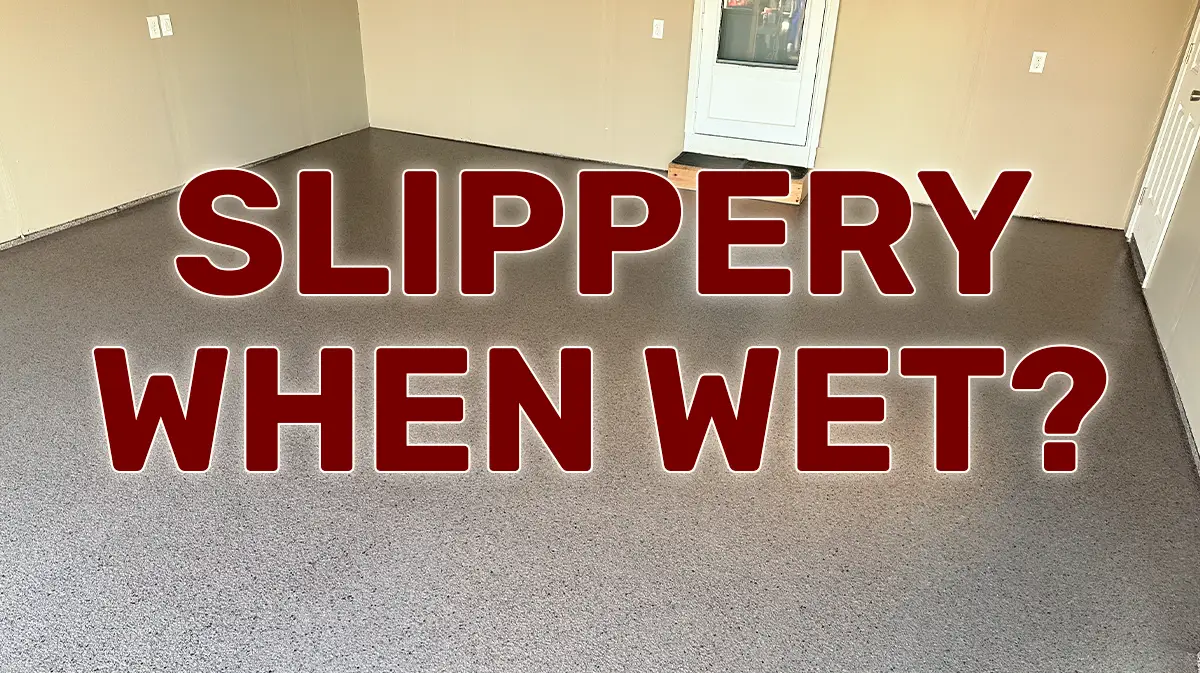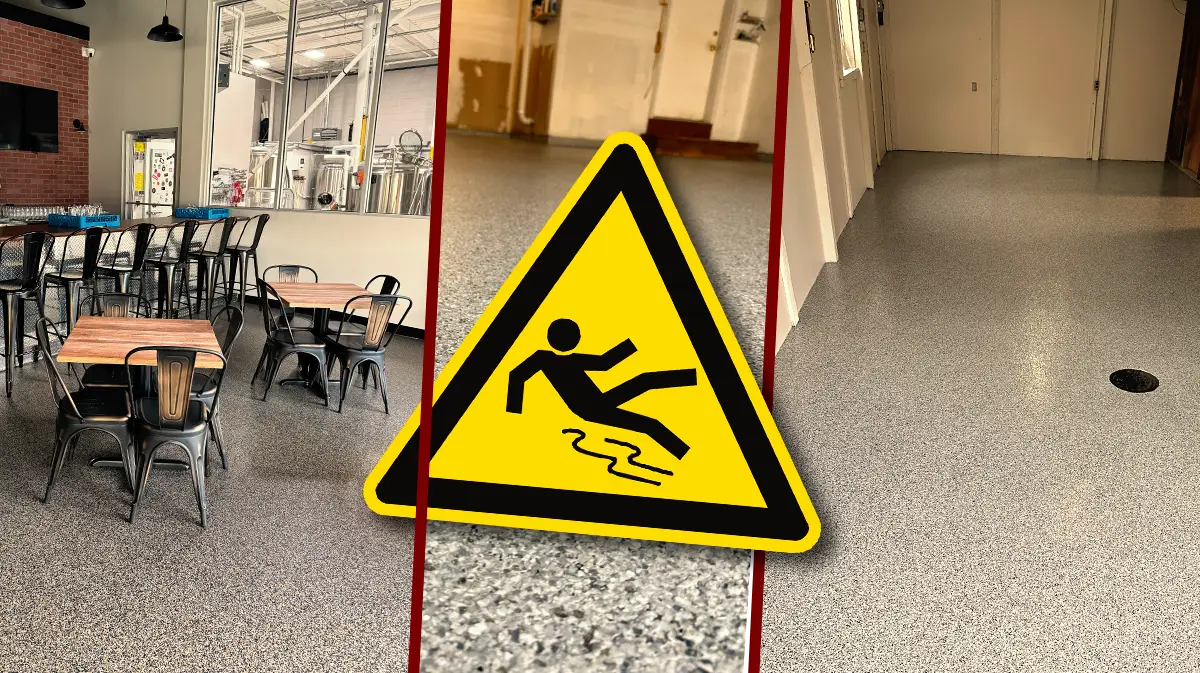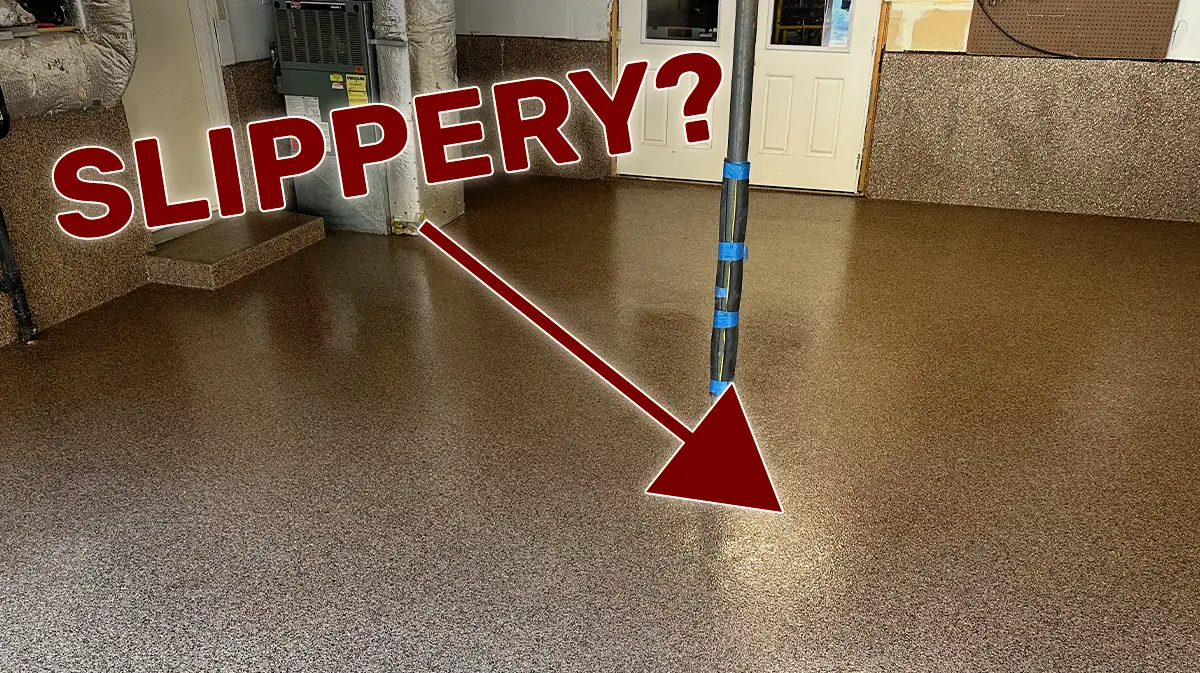Epoxy coatings are an outstanding choice for garage floors, known for their robustness, ease of upkeep, and resistance to chemicals and moisture. However, one drawback is that these surfaces can become slick when wet, posing a safety hazard. This is especially concerning in residential spaces like garages, basements, and patios, where water or other liquids might frequently spill.


Tennessee Weather
Nashville’s got humid summers and the occasional downpour, and both can contribute to slippery conditions on epoxy and polyaspartic coatings. Wet weather means more water being tracked into your garage, increasing the risk of slips.
Improving Safety with Anti-Skid Aggregates
To combat slipperiness, adding slip-resistant aggregates to the final coat of the epoxy can create a textured surface that reduces slip risks. Known as “anti-skid” or “anti-slip” aggregates, these materials enhance safety without compromising the benefits of the epoxy coating. Here’s a closer look at the types of anti-skid aggregates:
- Polypropylene and glass spheres: Suitable for low to medium traffic areas like kitchens and garages, these aggregates provide decent slip resistance and are easy to clean.
- Quartz and aluminum oxide: Ideal for high-risk areas such as those frequented by the elderly or where spills are common. They offer excellent slip resistance but are more visible and require more maintenance. These materials come in various colors, allowing them to blend seamlessly into the floor design.
Pro Installation for Optimal Safety
When considering epoxy coatings for your home, it’s important to consult with a professional contractor about slip-resistant options. They can guide you in selecting the best type of anti-skid aggregate for your specific needs, ensuring a safe, durable, and aesthetically pleasing finish.

